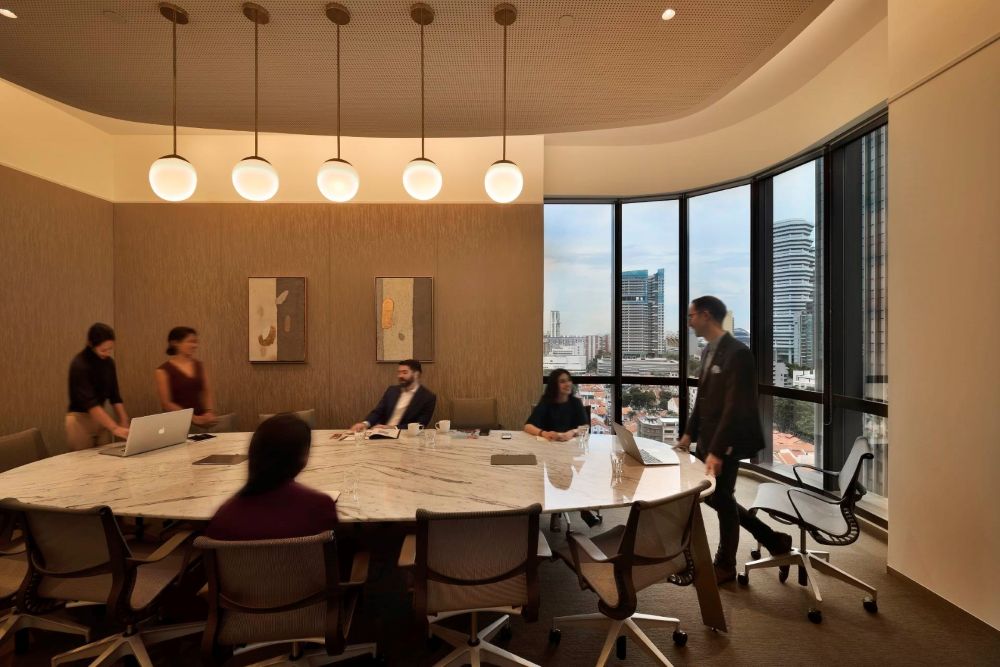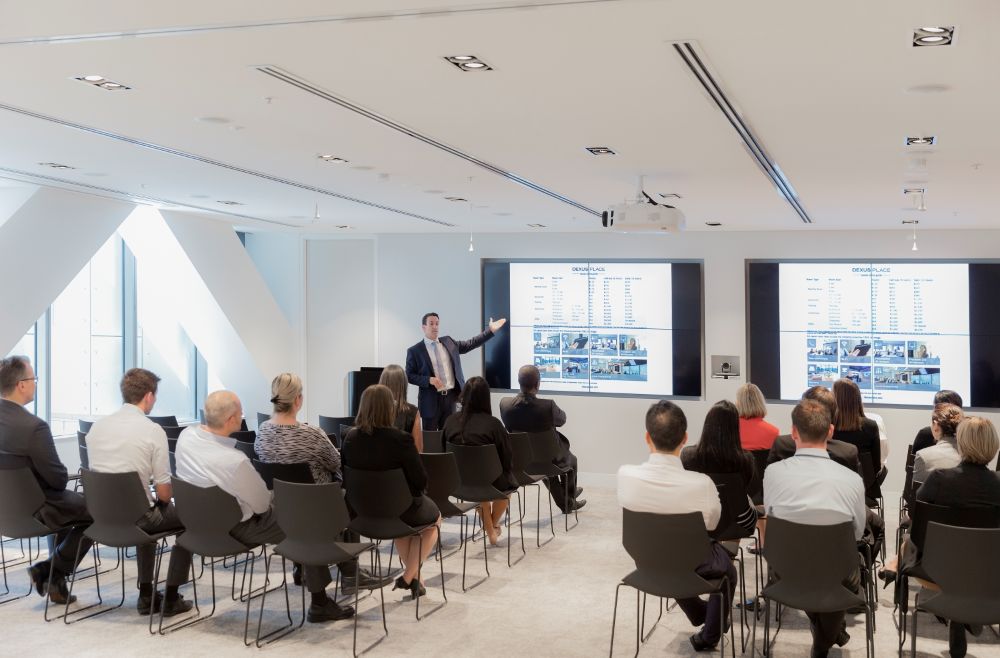The workplace in Singapore is changing—and fast. Modern businesses are increasingly seeing flexible work as a vital strategy for growth. It is no longer just a perk but a necessity if businesses want to stay competitive and responsive in today's demanding market.
This blog explores the extensive benefits of flexible work arrangements for both employees and employers in Singapore, explaining why they are becoming the new standard.
What Does Flexible Work Arrangement Look Like in Singapore?
A flexible work arrangement goes beyond simply working from home. As most Singaporeans are no more than two hours from their workplace, a flexible work schedule simply reinforces the idea of greater adaptability in how and when work gets done.
Common forms of flexible work include:
- Flextime: This allows employees to choose their start and end times, as long as they complete their total required hours. It provides adaptability around personal appointments or peak commute times.
- Compressed Workweeks: Employees complete their full-time hours in fewer than five days, for instance, working four 10-hour days instead of five 8-hour days.
- Hybrid Models: A popular work arrangement where employees split their time between working in the office and remotely, offering a blend of in-person collaboration and remote flexibility.
- Job Sharing: Two or more employees share the responsibilities of one full-time position, dividing tasks and hours to suit their individual needs while ensuring comprehensive coverage.
- Staggered Hours: This involves employees working at alternate timings, which can be useful for matching a target market's time zone or accommodating personal availability.
The core idea behind a flexible work schedule is offering employees greater autonomy over their work arrangemenst, fostering trust. This approach recognises that giving employees control over how they structure their day can lead to better outcomes.
How Do Flexible Work Arrangements Benefit Employees?
Improved Work-Life Balance
In Singapore's fast-paced environment, achieving work-life balance can feel like a constant challenge. However, flexible work schedules offer a significant advantage here. They empower employees to better integrate their personal lives with their professional responsibilities.
With more control over their working day, individuals can find time for a morning workout, a midday run along a park connector, or even manage evening classes. Flexibility allows for completing chores or tending to personal errands between tasks, freeing up weekends.
This emphasis on work-life balance reduces stress and burnout, contributing to a healthier and more engaged workforce.
Enhanced Well-Being
Beyond simply balancing commitments, flexible work options are directly linked to improved mental and physical health outcomes for employees. The ability to effortlessly manage personal appointments, dedicate time to regular fitness routines, or be present for crucial family needs significantly contributes to overall well-being.
This proactive approach to health, supported by an adaptable work arrangement, means employees feel more in control and less overwhelmed, fostering a more positive mindset and reducing instances of stress-related issues.
Increased Job Satisfaction & Morale
Granting employees autonomy and trust through a flexible work arrangement often leads to significantly higher employee satisfaction. Providing access to hybrid or flexible work arrangements is a tangible show of trust in your team; it signals that productivity isn't solely tied to being physically in-house. This belief, in turn, can give employees a stronger sense of fulfilment in their jobs. Feeling valued and trusted boosts overall morale and deepens their commitment to the organisation, fostering a more positive and productive environment.
Reduced Commute Stress & Costs
The daily commute in Singapore’s urban environment can be a major source of stress. The practical advantages of spending less time commuting are considerable for employees, as it saves on transport fares and precious travel time.
There is nothing appealing about squeezing into packed MRT trains during peak hours at Bishan, Paya Lebar, or Raffles Place. If employees can get a chance to opt out of such congested journeys, they truly appreciate it.
A work schedule that allows for reduced travel has a profoundly positive impact on daily stress levels, contributing to a calmer and more focused workforce.
Do Flexible Work Arrangements Benefit Employers Too?
Access to a Wider Talent Pool
Offering a flexible work arrangement significantly broadens an employer's recruitment reach. It extends beyond Singapore’s geographical borders, allowing businesses to attract skilled professionals from neighbouring countries like Malaysia, Indonesia, and even India without requiring full-time relocation. This approach widens the available talent pool and attracts diverse candidates, including experienced parents or caregivers seeking better work-life balance, and individuals who specifically desire integrated work schedules.
By taking advantage of this flexibility, employers can secure top talent who might otherwise be unavailable due to personal commitments or location constraints.
Higher Employee Retention
In Singapore's highly competitive job market, flexible work is a critical factor in retaining valuable staff. When employers offer a work arrangement that genuinely supports employees' diverse needs, individuals are far more likely to remain with that organisation. Providing autonomy and adaptability demonstrates that a company values its workforce beyond just their output.
A commitment to employee satisfaction translates into reduced turnover, saving businesses the substantial costs and time associated with recruiting and training new hires in a tight labour market. It fosters loyalty and continuity within the team.
Increased Productivity & Performance
The idea that flexible work might reduce output is a common misconception; instead, it empowers employees to perform at their most productive times. Employers can monitor remote employees’ productivity effectively through clear goal setting and performance metrics, rather than relying on face-time.
Trust and autonomy cultivated through a flexible work arrangement often lead to higher engagement and better results. Employees who feel respected and trusted are typically more motivated and committed, leading to improved output and overall organisational performance, ultimately benefiting employers.
Reduced Office Overheads
Adopting a flexible work model can lead to considerable cost savings for employers. By reducing the need for extensive, traditional office spaces, particularly in land-scarce Singapore where rental costs are high, businesses can significantly cut down on their overheads. With more adaptable in-office placements or smaller core teams, companies can opt to utilise coworking spaces for more affordable work arrangements, providing flexibility as needed.
This approach also leads to savings on utilities, maintenance, and potentially even long-term lease costs, optimising resources for scaling your business.
Implementing Flexible Work: Practical Solutions
Successfully implementing a flexible work arrangement requires more than just a policy; it demands suitable infrastructure and the right tools. Providing employees with reliable technology, robust communication platforms, and secure access to company resources is crucial for seamless operations.
Often, external solutions can significantly support internal flexible work policies, ensuring a smooth transition and reducing the burden on in-house resources. These partnerships can provide scalability and expertise that might otherwise be costly for employers to develop internally.
For businesses embracing these dynamic models, coworking spaces provide a ready-made solution. They offer fully equipped, professional environments without the overhead of a traditional office lease – a significant benefit in land-scarce Singapore. Additionally, hot desk rental options are particularly practical and cost-effective for employees needing a professional workspace on demand, ensuring they have a conducive spot whenever the office isn't their primary location.
The Future of Work is Flexible—Find a Flexible Work Arrangement at The Work Project

Hot desks in TWP OUE Building
In summary, the benefits of flexible work arrangements are undeniable and mutual. This modern approach is a strategic move, offering significant advantages of flexible work arrangements for both employers and employees in today's dynamic Singaporean business landscape.
To truly empower your workforce, \ businesses are encouraged to explore coworking spaces and hot desk rental options in Singapore. These are key components to support comprehensive flexible work strategies, creating a productive, adaptable, and engaged workforce.
Explore The Work Project’s coworking offices for flexible work arrangements today.






